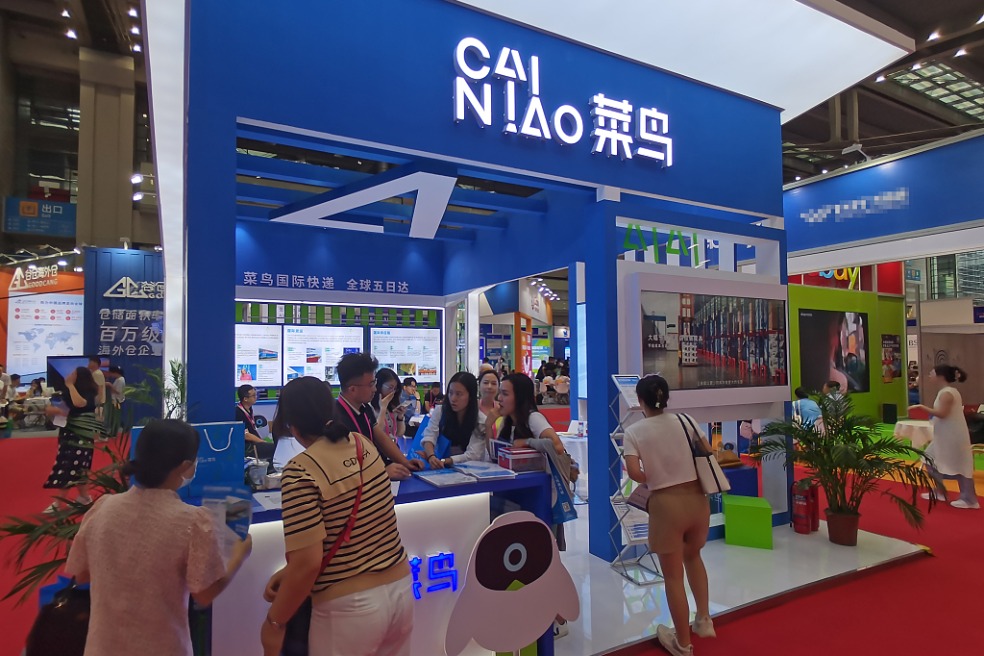Alibaba's Bold Rebirth: Can Leadership Overhaul Secure E-Commerce Dominance?
Victor HaleFriday, Jun 27, 2025 12:08 am ET
![]() 27min read
27min read
Amidst the relentless evolution of China's digital economy, Alibaba Group's recent leadership reshuffle and strategic pivot represent a high-stakes gamble to reclaim its position as the undisputed leader in e-commerce. The elevation of younger executives, exit of veteran leaders, and consolidation of power under CEO Eddie Wu signal a deliberate shift toward agility and innovation—critical to countering rivals like Pinduoduo (PDD) and Douyin's TikTok Shop. Yet, the question remains: Does this organizational renewal address Alibaba's stagnating growth and regulatory challenges, or does it risk overextension in a fiercely contested market?

The departure of Daniel Zhang (former CEO) and Trudy Dai (e-commerce veteran) marks a generational shift toward leaders unburdened by legacy systems. Eddie Wu, a co-founder with deep technical expertise, now wields unprecedented authority over Alibaba's core divisions: e-commerce, cloud computing, and AI. This consolidation aims to eliminate bureaucratic silos, accelerate decision-making, and align resources toward high-growth areas. Meanwhile, younger executives like Jiang Fan (now leading the unified e-commerce division) and Yu Yongfu (Local Services Group) are tasked with revitalizing stagnant segments.
The strategic logic is clear: . By streamlining operations and empowering a tech-savvy leadership cohort, Alibaba seeks to mirror the responsiveness of upstarts like PDD, which has surged to 56% of Alibaba's e-commerce revenue since 2023.
At the heart of Alibaba's renewal is its , exemplified by the Tongyi Qianwen series of large language models and the QwQ-32B, which outperforms rivals like OpenAI's Gemini in coding tasks. These tools are being embedded into e-commerce workflows—automating merchant support, personalizing recommendations, and even powering Alibaba Cloud's AI-driven infrastructure.
This data shows Alibaba's cloud division growing at 18% annually, while Pinduoduo's core revenue surged 94% in 2023. The gap highlights the urgency of leveraging AI to differentiate its core e-commerce platform, where growth has stalled at just 4%.
The company is also doubling down on , particularly in Southeast Asia and Turkey, where its investments in platforms like Lazada and Trendyol aim to counter Temu's aggressive pricing. Meanwhile, strategic divestitures—such as selling its stake in Sun Art—signal a shift to an “asset-light” model, prioritizing capital efficiency.
Pinduoduo's rise underscores the stakes: its focus on low prices and social commerce has eroded Alibaba's dominance, forcing a pivot to multi-dimensional value— over price alone. Alibaba's initiatives like “Tuihuobao” (reducing merchant return costs) and free global shipping for small businesses reflect this shift.
Yet challenges loom. Douyin's TikTok Shop, backed by Bytedance's viral content engine, threatens to disrupt both Alibaba and PDD. Alibaba's response—integrating its Douyin-like livestreaming feature, Taobao Live, with AI-driven analytics—remains unproven at scale.
Alibaba's financial flexibility is a key advantage. With $57 billion in cash and equivalents (as of March 2025), it can fund AI R&D and acquisitions without diluting shareholders. Share buybacks ($11.9 billion) and dividends ($4.6 billion) also signal confidence in its long-term prospects.
Despite a 20% dip in 2023, Alibaba's stock has rebounded 15% since early 2024 on optimism around AI and organizational reforms. However, its valuation lags peers like Amazon, trading at 18x forward earnings versus Amazon's 32x—a reflection of lingering concerns over execution.
Alibaba's restructuring is a bold attempt to reinvent itself for the AI era. If successful, it could unlock synergies between e-commerce and cloud/AI, creating a “flywheel” of innovation. Its cash reserves and global scale provide a cushion against setbacks.
However, investors must weigh the risks:
- : A 30%+ rebound if AI-driven growth accelerates and e-commerce recaptures market share.
- : A 20% drop if execution falters, regulatory hurdles mount, or Pinduoduo/Temü overtake its core businesses.
: Alibaba is a speculative play for investors with a 3–5 year horizon. Buy on dips below $90/share (as of June 2025) but hedge with puts given its volatility. Monitor cloud revenue growth and Taobao's user engagement metrics closely.
In the end, Alibaba's rebirth hinges on whether its new leadership can turn technical prowess into market share—proving that the old giant can still outmaneuver the upstarts. The jury is still out, but the stakes have never been higher.

:max_bytes(150000):strip_icc()/GettyImages-2212245228-463dc47d07a448b9a0a956d2bc205f80.jpg)








